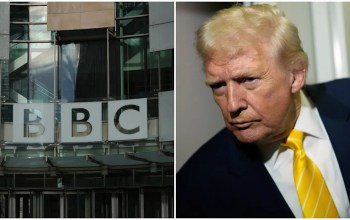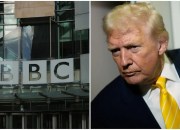
In a last-minute move ahead of Thanksgiving, President Donald Trump announced sweeping reductions to import tariffs on over 200 food items, including staples like beef, coffee, bananas, tomatoes, and tropical fruits. The administration says the policy aims to lower grocery costs for American families during the holiday season amid persistent inflation concerns.
The tariff rollbacks, formalized through an executive order, were made retroactive to the day before the announcement, immediately reducing import costs on a wide range of essential goods. White House officials framed the move as a practical solution to rising food prices, giving families a financial boost as they prepare for Thanksgiving meals.
Notable reductions include tariffs on ground beef and steaks, which had experienced double-digit price increases in recent months, and coffee, cocoa, and various spices. Even some fertilizer components used in food production will see tariff relief, indirectly helping farmers and producers reduce costs.
The administration credits recent trade agreements with Argentina, Ecuador, Guatemala, and El Salvador for facilitating these tariff exemptions, aiming to strengthen U.S. economic security while providing tangible relief to consumers.
Industry groups, including the Food Industry Association, welcomed the rollback as “timely relief” for retailers and consumers alike. Meanwhile, Trump floated the idea of issuing $2,000 dividend payments to lower- and middle-income Americans, funded by remaining tariff revenues, further signaling an attempt to ease economic pressures during the holiday season.
Economists, however, caution that while the cuts may provide some relief, they won’t immediately reverse food inflation, as prior tariff hikes have already embedded higher costs throughout the supply chain. Critics also suggest the move is politically motivated, pointing to pressure from voters frustrated by rising grocery bills.
Despite these debates, the timing of the tariff reductions is clear: Americans can expect slightly lower prices on popular Thanksgiving foods, including turkey accompaniments and other staples. The administration hopes that families will “gobble up more” this holiday season thanks to reduced import costs.
While analysts say the measure may not fully offset high grocery prices, it represents a symbolic gesture and practical relief for millions of Americans, signaling a continued focus on economic issues and household spending in the lead-up to the holidays.
Watch video below :












